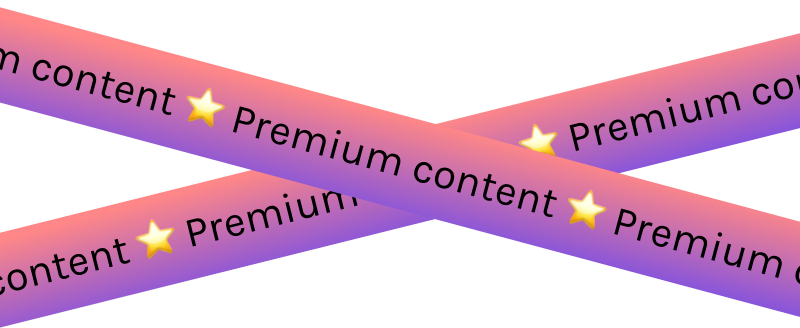How Michelin-Starred Saison Hospitality Leverages Design Thinking
October 02, 2024
Read Time
5 min
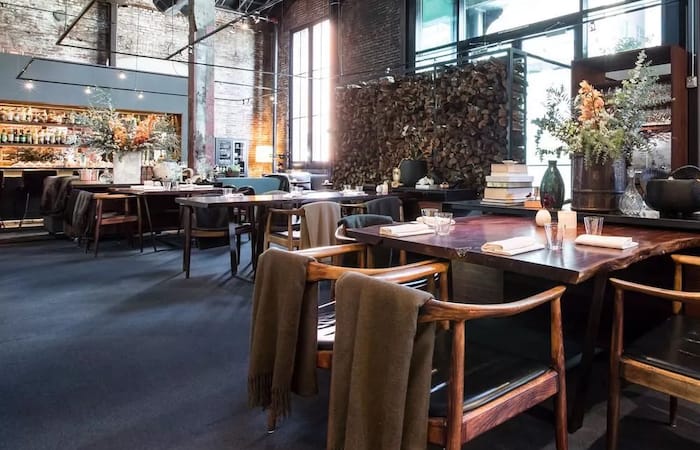
Over the past eight years, Saison Hospitality has earned two Michelin stars for its namesake SF-based restaurant Saison and a single star for its sister restaurant Angler, alongside its more casual Cellar & Wine Bar concepts. The group, co-founded by winemaker Mark Bright, also makes its own wine sourced from vineyards in Santa Cruz and Monterey, CA. After spending six years in tech sales and a short stint at Starwood Hotels, Jessica Kapoor joined the group to apply “design thinking” principles across the entire organization, helping prioritize and solve business challenges as Chief of Staff. This week, HNGRY sat down with Kapoor to discuss her transition into the industry, role, and upcoming breakout session at HNGRY Summit later this month where she will help operators apply frameworks she has learned over the past decade and a half.
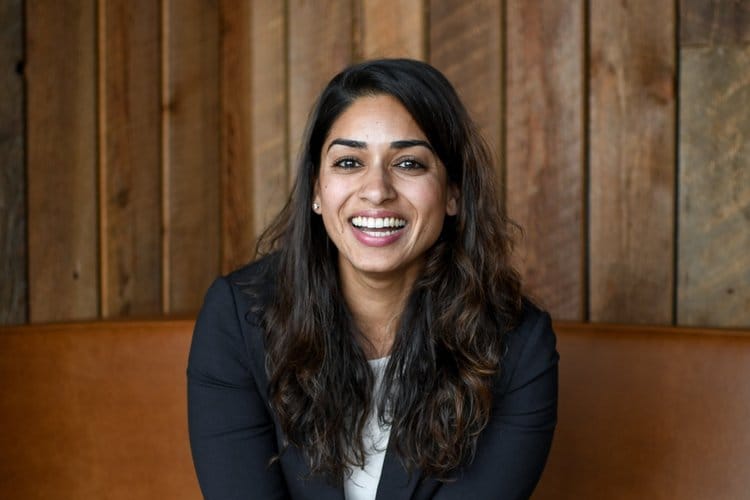
Design thinking refers to a movement that began in the mid-20th century around iterative, human-centered design and engineering principles that has been championed by firms like IDEO in the 90s. Its principles underscore values like empathy for the end consumer, wide ideation, and rapid prototyping. Kapoor first became enamored with these principles during her role as an account executive at SAP where she sold its cloud-based solutions to SMBs. The firm would hold design thinking workshops with stakeholders, drafting a problem statement for the customer before prioritizing potential solutions. Kapoor then moved to a mid-sized startup that built financial planning/analysis tools before joining the ex-CIO of Tesla as an early employee, gathering requirements to help build its first product– an ERP system for car dealerships known as a DMS (dealer management system).
“Friends would ask me what line of work you’re in, I thought I was a business therapist,” said Kapoor. “Whether it was selling or building software. If I didn’t have that experience I would not be able to see organizations today in the way that I do.”
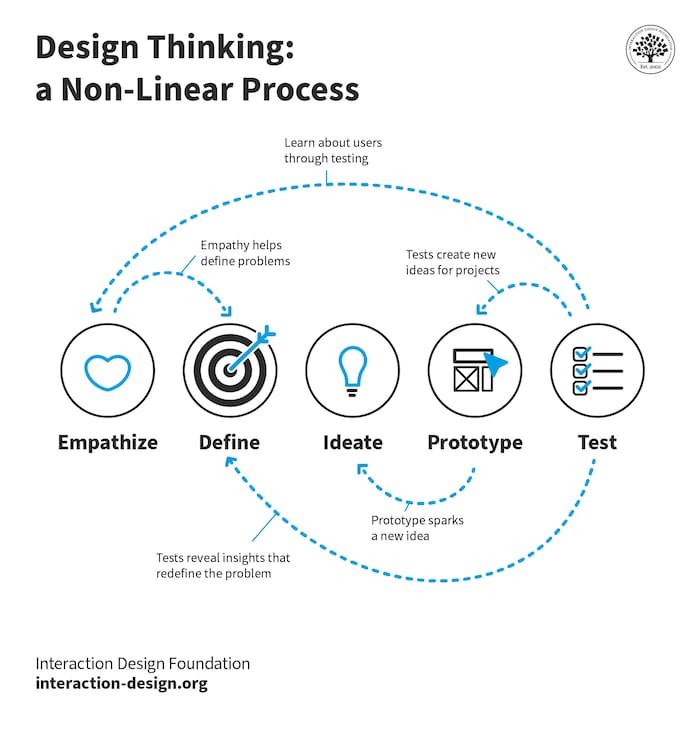
Kapoor joined Saison in late 2018, where she carved out a Chief of Staff role around identifying challenges like consolidated payroll and inventory through a migration from Upserve to Toast and upgraded communication through a migration to Google Workspace. As the pandemic hit, she took on a catch-all role where she was problem solving in real-time with restaurant operation teams and chefs. Because Saison is a seafood-focused restaurant, it didn’t lend itself well to takeout. In less than three weeks, she helped her team launch a new barbecue concept called Smokehouse that sold takeout via Tock. It was an instant hit as customers resonated with comfort food during the early days of Covid, helping raise $50k for furloughed staff.
“In some ways, while it was awful, it was great because it forced us to think of surviving versus sitting on a high horse, not changing at all,” she explained. “It forced us to be more flexible.”
Today, many of these learnings have shaped the course of Saison Hospitality through new channels like its new wine bar and cellar. For $5k per year, Saison Cellar members get access to store up to 78 bottles in its climate-controlled fridges, a small group space, dedicated reservations concierge, and a house account with $5k in dining credits in their first year. The membership is powered by a startup called The Third Place, a suite of tools powering events, subscriptions, e-commerce, and loyalty programs for restaurants. Adjacent to the cellar is a casual 40-seat wine bar that serves light bites alongside its extensive wine list. Kapoor also helped address lagging lunch sales at Angler by launching a $45 Quick Catch lunch menu designed as a value deal for corporate clientele returning back to the office. The offering brought in a new revenue stream that wasn’t previously non-existent and has remained part of its daily service. She is inspired by brands like Darden who have successfully catered to the office lunch crowd through concepts like The Capital Grille.
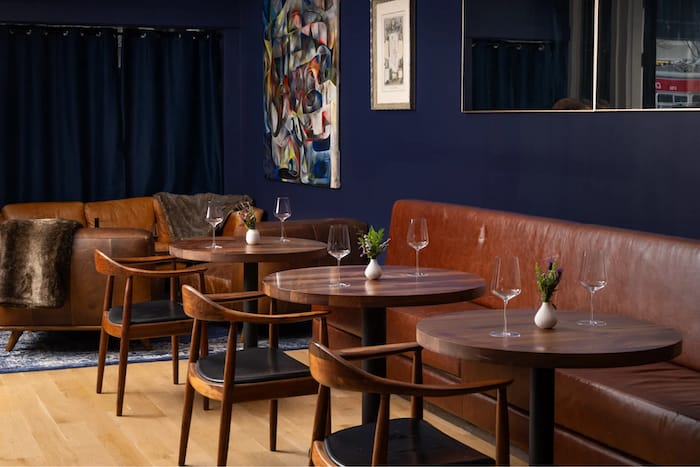
“You have to think about your supply and demand,” she said. “If demand is not there, what are you going to do about your supply so you create demand?”
Kapoor laid out a simple four-step framework for operators to apply design thinking to their hospitality. First is a gathering phase of understanding the problem at hand by building alliances across functional teams to understand the daily problems they are facing on the ground. Next is a brainstorming process to identify and explore different areas that address those problems. Then comes the testing and implementing phase to see if an idea sticks. The key during this phase is to give the new initiative time to play out over the course of four to six weeks to ensure one doesn’t end up losing too much time or money on something that isn’t working. Last comes the iteration phase where one further defines and tweaks the initiative or goes back to the drawing board entirely. In the case of Angler’s new lunch program, this involved slightly raising the price to meet the early demand.
On October 25th, Kapoor will host a breakout session at HNGRY Summit at ChowNow HQ in Los Angeles titled “Innovate to Elevate: Leveraging Design Thinking for Problem Solving in Hospitality & CPG.” Breakout sessions follow the Unconference format and are intended to be highly collaborative forums for Summit attendees to solve real-world problems. Participants will write down business challenges they are currently facing on Post-It notes where they will be grouped by topic and voted on as the focus of group discussion for 50 minutes. Other sessions include:
- “Creating Theatre Out of Food in the Digital Age” by Kevin Kelley, Co-founding Partner & Principal @ Shook Kelley
- “From $500k to $5mm: Navigating Finance, Facilities, and Ops in CPG” by Mott Smith, Co-Founder & CEO @ Amped Kitchens
- “Restaurant to Retail: What a Brand Needs to Be Successful” by Monika Coyle, VP of Consumer Brands @ DOM Food Group
- “Upgrading the 18th Century Restaurant Business Model to Modern Day” by Eli Feldman, Partner @ Shy Bird
- Future-Proofing the Smart Kitchen: Scalable Solutions for the Connected Restaurant by Jake Simon, Founder & CEO @ Connected Fresh
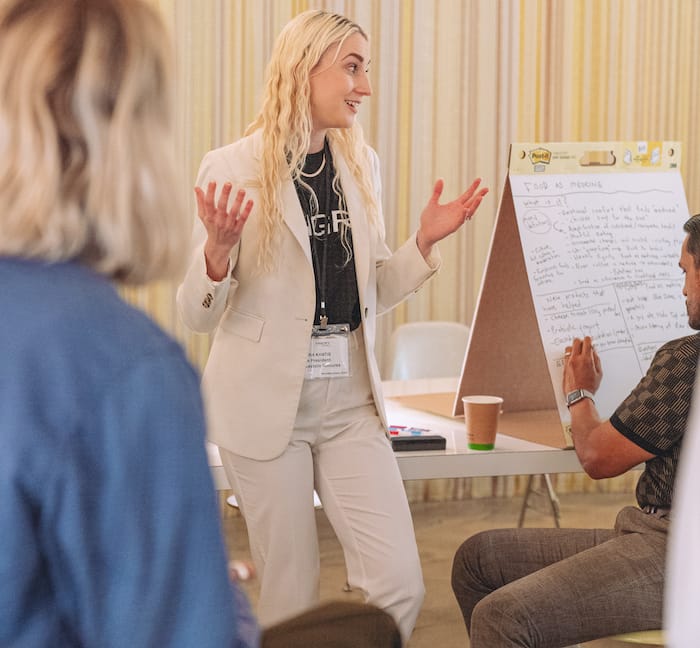
“In hospitality we are technology laggards,” said Kapoor. “We tend to not want to spend time on what can make things easier for us. We’re ok with following the same process we’ve been following for years and years.”
Perhaps technology is the solution, but maybe it is simply a better design of an internal process or a new daypart menu offering. Whatever it is, we should all ban together as a holistic food and beverage industry to examine the entire system from farm to table and think of an innovative way forward that addresses today’s constrained environment.
See you in LA?

